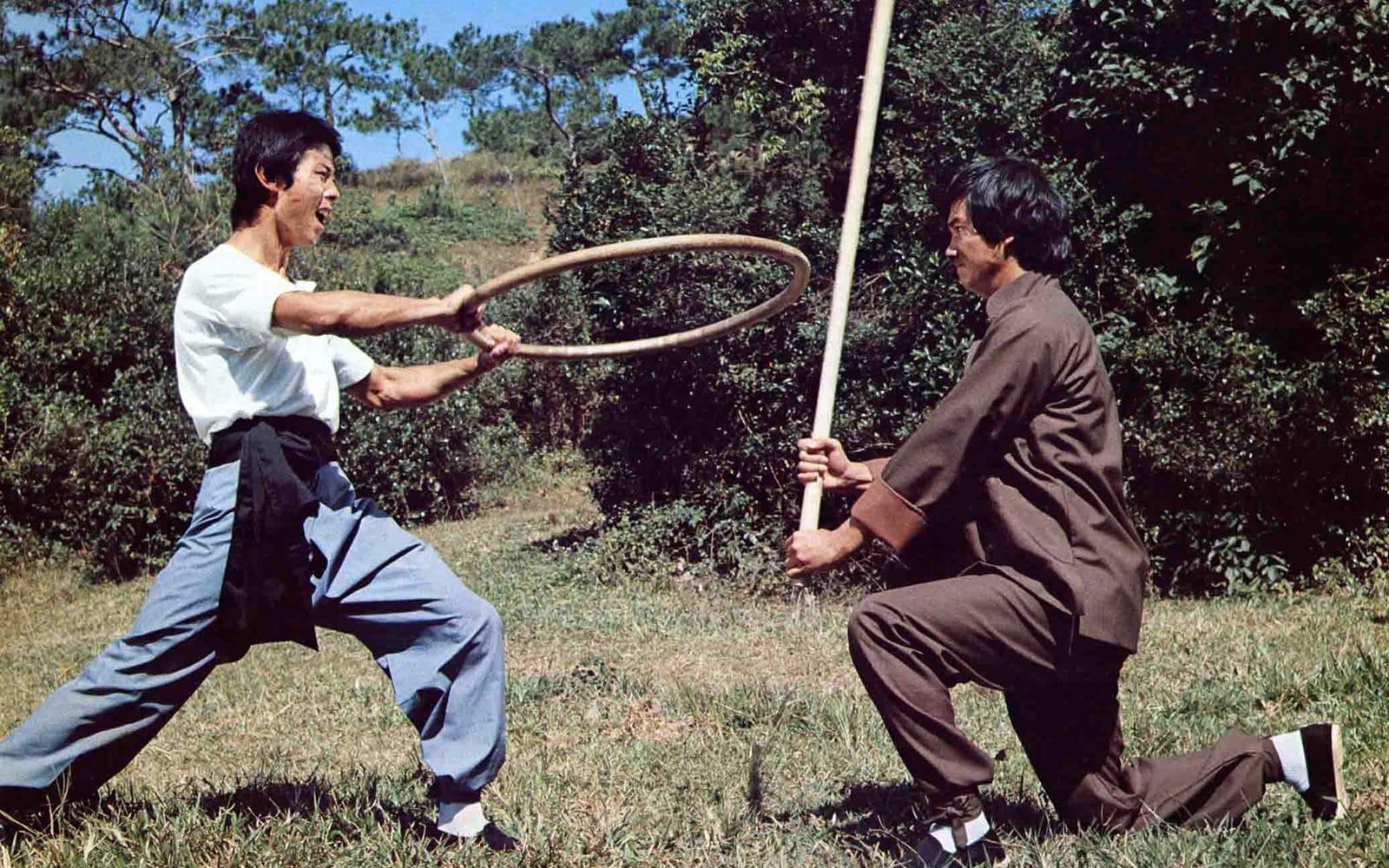Kung Fu Genius by Wilson Tong (Review)

There are just some things in Hong Kong movies that you just won’t find anywhere else. It’s very rare when I watch a manic chopsocky flick and I don’t find myself wondering “Where did they come up that?!” For example, what were they thinking when came up with severed, talking, and exploding head in Duel to the Death? And what was Jackie Chan smoking when he decided that Operation Condor 2 needed to end with him fighting 4 large black women in stiletto heels? And when, exactly, did Wilson Tong decide to throw some “duck” style into Kung Fu Genius?
Yeah, that’s right… duck style. You see, there are many kung fu styles modeled after the movements and strengths of various animals. For example, “dragon” style emphasizes flowing, swirling movements, like a dragon flying through the air. “Bull” style emphasizes charging and tackling. The “monkey” style is awkward and agile, emphasizing quick, improbable movements to throw off the opponent. But just what does the “duck” style offer? Loud, obnoxious noises to confuse your foe? Does the waddling make it easier to dodge blows?
Well, I guess it matters little, because as anyone who has seen their fair share of kung fu films knows, reality has very little place in them. And that’s especially true of Kung Fu Genius. Cliff Lok plays a powerful but poor kung fu master, the titular genius (his genius comes from having mastered so many styles). His comic relief (aka student) convinces him to start a kung fu school, the aptly titled “Genius” school. Unfortunately, this crosses the “Spiritual Boxing” school, so named because of their ability to call upon the spirits of great fighting styles.
One of the members attacks the genius’ student, leaving a babbling fool. The good sifu takes revenge, beating up his student’s assailant at the local brothel. Unfortunately, the son of the brothel owner is left a babbling fool as well (setting up for a silly scene when the two fools battle each other). The owner calls in his brother, played by Wilson Tong, who is master of the “fan” style. And you know where this leads… the two schools realize they must fight together, and the genius reveals just why he is a genius.
It sets itself to be your typical chopsocky flick, but there were some above average scenes. For example, I thought the training sequences of the “Spiritual Boxing” school were pretty darn impressive, especially the display of “drunken monkey” style. But let’s be honest… you know you’re not going to watch a “great” movie. But even though this movie came out several years before the whole Deadly Venoms phenomenon (one of the most famous series in kung fu cinema), I found the martial arts to be better. They were less predictable, somewhere between the rhythmic, cadenced fighting of Five Deadly Venoms and the crazy mayhem of Snake in the Eagle’s Shadow.
Yes, it’s silly and cheesy, but what else do you expect from a kung fu movie with the “duck” style? It falls into all of your normal genre stereotypes (except for the one about avenging your master’s death). And I’m sure the portrayal of insanity is less than sensitive (picture the final scene of Drunken Master 2 multiplied by 10). But we’re talking about the freakin’ “duck” style here, so nothing can be taken seriously. If you’re a novice, don’t watch this movie, because there are parts that are pretty painful to watch. But if you grew up watching Black Belt Theatre, you’ll probably be right at home.